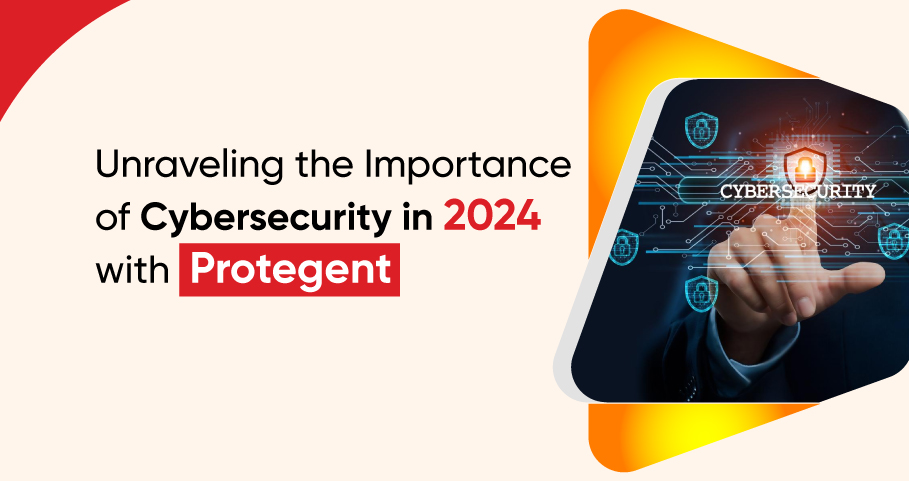
Safeguarding the Digital Frontier: Why Cybersecurity Is Essential in 2024
In an era defined by digital innovation and connectivity, the role of cybersecurity has never been more crucial. The exponential growth in cyber threats and the increasing sophistication of cybercriminals demand heightened vigilance and proactive measures to protect sensitive data. In this blog post, we’ll delve into the latest updates that underscore the indispensability of cybersecurity, in the coming new year 2024.
What is Cybersecurity?
Cybersecurity is a comprehensive set of practices, technologies, and processes designed to protect computer systems, networks, and data from unauthorized access, attacks, and damage. It encompasses a multitude of strategies, ranging from robust firewalls and encryption to user awareness programs and advanced threat detection mechanisms.
The Importance of Cybersecurity
In an era where digital transformation is the norm, the importance of cybersecurity cannot be overstressed. Cybersecurity safeguards sensitive information, ensures business continuity, protects privacy, and fosters trust among users. Without adequate cybersecurity and total security measures, organizations may face the looming threats of data breaches, financial losses, and reputational damage.
Why is Cybercrime Increasing?
The landscape of cybercrime is evolving rapidly, fueled by factors such as technological advancements, increased connectivity, and the growing sophistication of cybercriminals. The lucrative nature of cybercrime, coupled with the anonymity offered by the digital realm, contributes to the surge in malicious activities.
What is the Impact of Cybercrime?
The impact of cybercrime extends far beyond financial losses. Organizations face operational disruptions, legal consequences, and damage to their reputation. Individuals may experience identity theft, loss of sensitive personal information, and other devastating consequences. The ripple effects of cybercrime can be felt across entire economies.
How to Protect Your Organization Against Cybercrime?
Implementing a robust cybersecurity strategy is imperative for organizations looking to fortify their defenses. This includes regular security audits, employee training programs, the use of advanced antivirus software, encryption of sensitive data, and the adoption of a ‘zero trust’ approach to access control.
Examples of Damages to Companies Affected by Cyber Attacks and Data Breaches
The surge in cyber attacks and data breaches in recent years is alarming, with numerous well-known companies falling victim. A notable few include:
Equifax
The Equifax cybercrime identity theft event impacted around 145.5 million U.S. consumers, 400,000-44 million British residents, and 19,000 Canadian residents. Equifax faced legal consequences, including a $300 million fund for victim compensation and fines.
eBay
In 2014, eBay experienced a breach of encrypted passwords, leading to a reset for all 145 million users. Attackers used employee credentials to access user data, including encrypted passwords, names, emails, addresses, and more.
Adult Friend Finder
In 2016, hackers obtained 20 years of data on six databases from The FriendFinder Network, exposing information from Adult Friend Finder, Penthouse.com, and others. Weak password protection led to a high percentage of cracked passwords.
Yahoo
Yahoo revealed a 2013 breach compromised 1 billion accounts. Security questions and answers were compromised, elevating the risk of identity theft. The breach, one of the largest in history, involved a subsequent estimate of 3 billion affected user accounts.
These instances, though they happened in the past decade still have an impact on the present, alarming the present decade and representing a fraction of the broader landscape of data breaches, emphasizing the pervasive and evolving nature of cybersecurity threats.
Is Your Business at Risk of a Data Breach? Protect with Protegent Antivirus Software.
In the face of escalating cyber threats, Protegent Antivirus Software emerges as a reliable ally in the fight against cybercrime. With its advanced features, including real-time threat detection, data encryption, and proactive defense mechanisms, Protegent offers a robust shield for businesses seeking to safeguard their digital assets.
Proactive Defense: The Need of the Hour
In response to the evolving threat landscape, organizations are recognizing the imperative to shift from reactive to proactive cybersecurity measures Protegent Antivirus Software is the best. The concept of ‘zero trust’ is gaining traction, advocating for continuous verification and strict access controls to mitigate the risk of unauthorized access and data breaches.
In conclusion, the importance of cybersecurity cannot be overstated in a world driven by digital interactions. As cyber threats continue to evolve, adopting proactive cybersecurity measures becomes not just a choice but a strategic imperative for individuals and organizations alike. With the right tools and practices, we can collectively build a more secure digital future.




